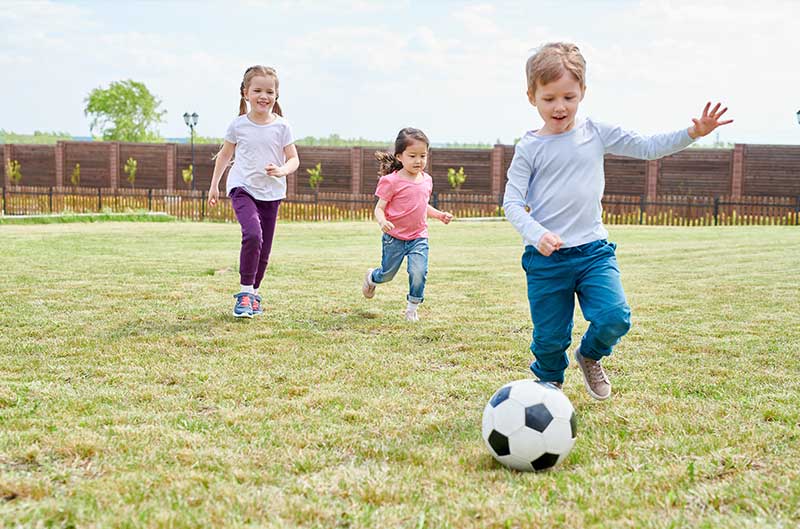
Why Play Is Beneficial
Author: Austin Stanfel
Youngsters need to go out. They need to run around and do things instead of being home. Playing is natural and should be enjoyable for children to keep active, healthy, and happy. There are those muscles and their bones and their cognitive abilities. There is also the fact that the highest percentage of overweight and obese people in the world live in the United States with anxiety and depression rates on the rise to children under the age of 18. People recognize this as necessary for children because they have multiple benefits.
The first benefit is health. For decades, American children have been getting heavier on average, to where obesity is prevalent. The number of children overweight has tripled since 1980, and 10 percent of them are considered obese. Overall, about 160 million Americans are either labeled as obese or overweight, with 30% of boys and girls under the age of 20 being either obese or overweight. The lack of exercise is a direct connection to childhood and adult obesity, which can cause various health ailments. The encouraging play could be done to increase physical activity and counter the rising obesity epidemic in their 60 minutes of free time.
The third benefit of play is social skills and self-confidence. Playing within a natural environment can result in dramatic gains for all sectors of child development. Playing promotes confidence, decision-making, and social skills. Children also want to be challenged and take risks to find out their limits. Thus, they learn from any mistake they make, try again, and give them to freedom to do anything. Physical play also releases endorphins and reduces stress. The mental benefits of physical play is a valuable benefit to help children offset any negative thoughts. For most children, playtime is the best opportunity to release energy healthily.
Parents themselves can directly play with their children for fun. A parent can support and be part of their child’s play without forcing the issue or result. Parents should not make all the decisions because the child won’t enjoy playtime. Influencing them and encouraging them to do athletic feats will get them to do almost anything, making play fun and not a boring hobby. Play helps children to achieve a healthy development in all factors, health-wise and improve social shortcomings. For children to have good physical and mental health, play must start at the beginning of their lives to reap all the benefits that come out.

